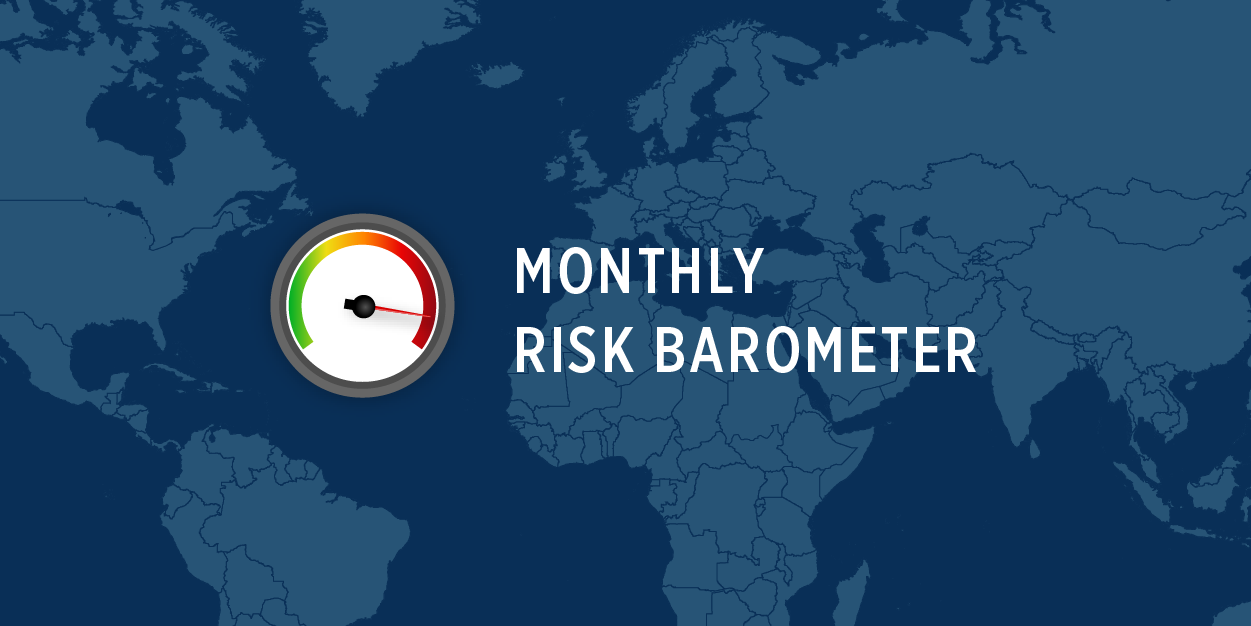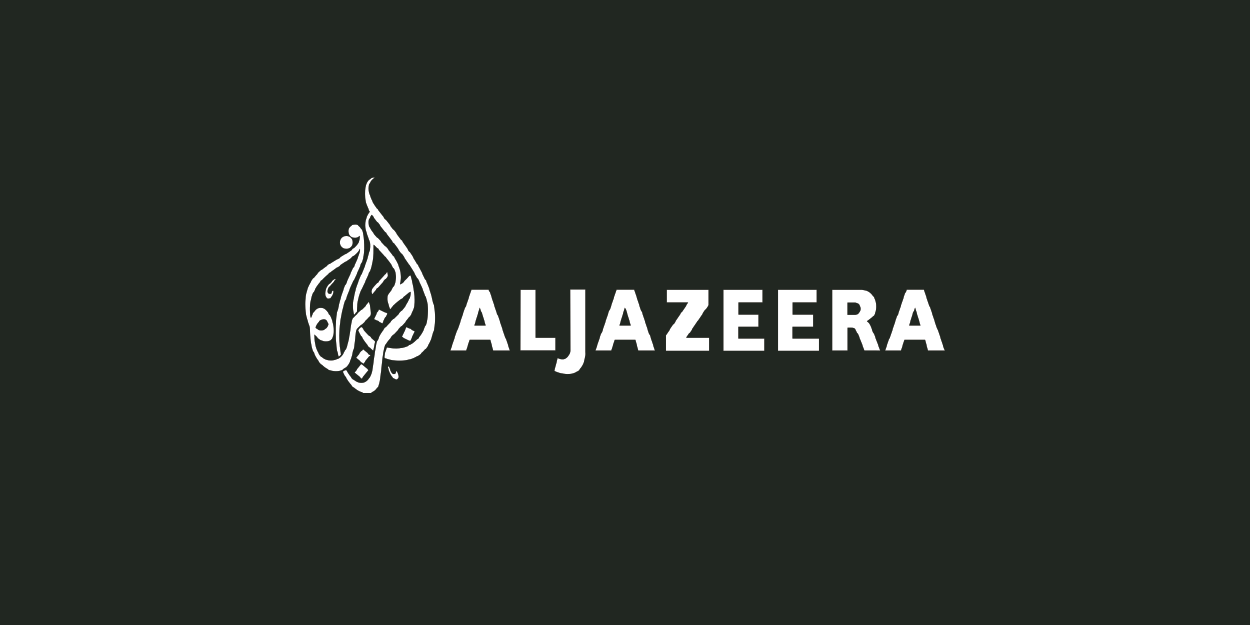In Global Guardian's monthly Risk Barometer, our Intelligence Team highlights current global hotspots with the potential to impact your business operations and travels. Read below for analysis on the threats we are closely monitoring this month and click here to subscribe for regular intelligence updates, including this monthly report.
General Elections Replete with Security Risks
On 14 May, Turks will go to the polls to elect both their president and parliament in the highest stakes election in a generation. A second round between the two top presidential contenders will take place on 28 May unless the 14 May poll produces a clear presidential winner with more than 50% of cast votes. Due to the tightness of the presidential and parliamentary races and high projected turnout, few expect the losing bloc to accept the election result. Not only is the outcome likely to be disputed, but there is also an elevated risk of security incidents in the final days through election day and the potential run-off process.
The incumbent, Recep Tayyip Erdogan and his Justice and Development Party (AKP) have won the last five parliamentary elections, two presidential polls, and three referendums. He even thwarted a military coup in 2016. Yet this election could spell an end to Erdogan and the AKP’s tight grip on power for the last 20 years. Per Türkiye’s historical record, a peaceful transfer of power would be unprecedented: no modern Turkish president has been ousted by way of the ballot.
- Global Guardian anticipates disputed parliamentary election results and an inconclusive first-round of presidential voting.
- We recommend halting non-essential travel to Istanbul and Ankara until after the election results have been confirmed and then accepted by all parties.
- For essential travel to Türkiye during this period, Global Guardian recommends having an evacuation plan in place should the security environment deteriorate.
- For those who will be in country on election day, we recommend stocking up on essential supplies including water and non-perishable food, and reducing movement outside of your home.
- Global Guardian maintains a travel advisory for: Batman, Diyarbakir, Gaziantep, Hakkâri, Hatay, Kilis, Mardin, Sanliurfa, Şırnak, and Tunceli provinces in eastern and southeastern Türkiye.
Recent Events
29 April – The leader of the Islamic State (IS) militant organization, Abu Hussein al Qurashi, was killed in a Turkish security raid in Syria.
25 April – Police in Diyarbakır, Diyarbakır arrested 110 individuals in a counter terror raid that the pro-Kurdish People's Democratic Party (HDP) decried as an act of voter suppression.
22 April – Two shooters opened fire at an AKP election campaign office in Gungoren district, Istanbul.
20 April – The Supreme Election Council of Türkiye (YSK) ruled to exclude the opposition coalition, the Republican People's Party (CHP) and Iyi Party, from participating in the 14 May general election under the "Nation Alliance" banner in an ostensible effort to confuse voters.
20 April – A shooting was reported at the Cukurova AKP district office in Adana Province.
06 April – A shooting was reported outside an opposition Republican People's Party (CHP) office in Istanbul.
Context
Economic
- Over the past two years, the Lira has lost 60% of its value against the dollar.
- Over the past five years, foreign ownership of equities has halved and foreign owned government debt has decreased 25-fold.
- Last fall, inflation reached 86% year-on-year and currently remains over 40%.
- In January, the current-account deficit hit a record USD $10 billion.
Humanitarian
- On 06 February 2023, a 7.8 magnitude earthquake rocked southeast Türkiye near the Syrian border, resulting in the creation of over four million internal refugees in Türkiye and the deaths of over 50,000 people in an area that was traditionally an AKP stronghold.
- Türkiye hosts over 3.5 million Syrian refugees (largest refugee population on the planet). Kemal Kılıcdaroğlu and the National Alliance have pledged to repatriate them in Syria.
Political
- Polls predict a record voter turnout this year; projecting over five million new voters
- During the 2019 Istanbul and Ankara mayoral election, the AKP lost control of the country’s financial hub and capital, prompting party officials from both cities to reject the results, citing voter irregularities.
- Following the 2016 coup, Erdogan purged the military of independent leadership, stacked the judiciary, took de facto control of the elections apparatus, and chilled freedom of the press.
- The only Turkish president to have voluntarily left office while still wielding levels of power and influence comparable to Erdogan’s was Inonu in 1950.
Looking Forward
A Close Race – preliminary results should come in overnight on 14-15 May, and the Supreme Election Council are expected to declare unofficial results within the following two or three days. But certain delays can be expected, especially with the logistical challenges associated with polling in the earthquake affected areas and over a million early expatriate ballots being collected from abroad. What’s more, with a three-man presidential race, there is a high likelihood that neither Erdogan or Kılıcdaroğlu can secure more than 50% of the vote without a run-off. Tensions will be higher in provinces where no single presidential candidate or political party have a clear dominance, fueling allegations of election fraud or voter suppression.
Acute Security Incident(s) – Largescale terror attack(s) targeting voters or political rallies cannot be ruled out. Jihadist groups (including IS), Kurdish independence groups, or government-connected actors (false flag operation) all have the motivation and capability to conduct an attack. In this scenario, martial law would be declared and the election tabulation will be put on hold until the government can reestablish law and order. A major attack could be used to justify a renewed military operation in Syria or Iraq and could be used to indefinitely suspend the election process.
Violent Protests – In the event of an inconclusive poll, all parties may demonstrate even amid a heightened and heavy-handed security posture. Furthermore, Syrian (and Afghan refugees) fearing a Kılıcdaroğlu/National Alliance win and possible deportation, could begin to take to the streets to either intimidate potential voters or protest the initial vote counts.
Key Takeaways Political tumult will be a feature, not a bug of Türkiye’s upcoming general election. Unless the election is won by a landslide – which appears unlikely – a disputed outcome and associated unrest can be expected at best. No Turkish president has been ousted by way of the ballot and Erdogan is unlikely to step down without a fight. Once accepted, the outcome of this election will impact great power competition with China and Russia, European domestic politics, Middle Eastern regional politics, global refugee, and investment flows. |
Power Struggle in Sudan is Threatening to Destabilize the Region
Both the regular Sudanese Armed Forces (SAF) and the paramilitary Rapid Support Forces (RSF) consider themselves capable of military victory, have few incentives to negotiate, and are actively seeking support from outside actors. The conflict – which has already seen more than 700,000 people displaced and thousands of casualties - will likely develop into a protracted struggle and threatens to destabilize an already delicate region.
Talks being held between the two factions in Saudi Arabia have failed to yield progress as fighting and looting continue. Saudi and American diplomatic sources have indicated that neither side sees a political solution as viable, and both sides consider themselves capable of achieving their political aims through outright military victory. The goal of the talks is to negotiate a ceasefire – not a peace agreement – to facilitate the exodus of foreign nationals and allow for desperately needed humanitarian supplies.
- Global Guardian recommends against all non-essential travel to Sudan
Context
On 15 April, fighting broke out between RSF and SAF forces in the capital Khartoum and other strategic locations throughout the country. The fighting has been characterized by the use of heavy weapons on both sides, SAF airstrikes in populated areas, and indiscriminate robbery and looting as the supply situation becomes dire. Thousands of foreign nationals have been forced to undertake dangerous evacuations with minimal supplies, the threat of robbery and violence, and in some cases, crossing thousands of kilometers of desert.
General Abdel Fattah al-Burhan of the SAF and General Mohamed Hamdan Dagalo – better known as Hemedti – of the RSF took control of Sudan in a 2021 coup. Burhan and Hemedti agreed in late 2022 to restore civilian leadership within a two-year timeline. However, as part of the transition plan Hemedti’s RSF was slated to be integrated into the regular army. Hemedti’s substantial personal fortune was built through the RSF and its loss would likely entail his exclusion from politics and possible prosecution for crimes against humanity perpetrated by the RSF.
Timeline
- 15 April – Fighting breaks out between in RSF and SAF forces concentrated in Khartoum
- 17 April – Clashes resume in Khartoum, Omdurman, and Merowe airport (MWE)
- 21 April – Reports of heavy shelling and gunfire in Khartoum, Khartoum Bahri, and Omdurman
- 23 April – Over 25,000 detainees escape from Kobar Prison and four other prisons
- 30 April – SAF attempts to dislodge RSF in Khartoum using air strikes and heavy artillery
- 06 May – Turkish embassy in Khartoum is moved to Port Sudan after the Turkish ambassador's car is hit by gunfire.
Key Takeaways It is very unlikely that Hemedti and Burhan will be able to come to a political solution in the absence of overwhelming international pressure. For both Hemedti, Burhan, and their cadres, control of the regime is a life-or-death situation. As both factions seek outside support to tip the balance, elements of the conflict could spill over, affecting Ethiopia, South Sudan, the Central African Republic, and Libya. |
Protests, Unrest Subside but Risks Remain amid Political Uncertainty
The nationwide protests that began in December 2022, following the impeachment and arrest of former president Castillo, and lasted for months have since subsided across most of the country as the protest movement loses energy. The government has lifted curfews and states of emergency in most areas. However, risks of future unrest cannot be ruled out as acting president Dina Boluarte and Peru’s Congress remain unpopular and have yet to capitulate to the protesters’ demands, including resignation and moving up elections from the original 2026 date.
- Global Guardian continues to advise against any non-essential travel to rural areas in the south of Peru, including Puno and La Libertad regions.
- Travel to Lima and other large cities may resume, including to Machu Pichu, which was heavily impacted by protests.
- Global Guardian strongly recommends the use of low-profile secure transportation for essential travel within Peru.
Context
Faced with the third attempted impeachment since his inauguration, President Castillo attempted to dissolve Congress and set up a provisional system of rule by decree on 07 December 2022. However, Congress successfully removed Castillo from office, charged him with rebellion and conspiracy, and installed his former vice president Dina Boluarte as President. Castillo’s supporters took to the streets in Lima and across the country demanding his release, an accelerated election schedule, the dissolution of Congress, the resignation of Boluarte, and constitutional reform.
Demonstrations caused severe disruptions to travel throughout the country. Protesters established roadblocks on main highways in the departments of Puno, Cusco, Arequipa, Madre de Dios, Apurimac, Ucayali, and Tacna. Pro-Castillo supporters also stormed airports across several regions, and thousands of tourists were evacuated from sites, including Machu Pichu, after being stranded by transportation disruptions.
Notable Events
- 27 April 2023 - Authorities imposed a state of emergency (SoE) in border districts of Tumbes, Piura, Cajamarca, Amazonas, Loreto, Madre de Dios and Tacna departments, effective for 60 days until 26 June, to tackle illegal immigration at border crossings with Chile, Bolivia, Brazil, Ecuador, and Colombia. The SoE allows armed forces to conduct public security duties and restricts the rights of assembly and movement.
- 25 April 2023 - Authorities announced that Inca Manco Cápac International Airport (JUL/SPJL) in Juliaca, Puno region, resumed operations following a closure due to property damage caused by clashes between security forces and anti-government protesters in the vicinity of the airport on 06 January.
- 20 April 2023 - Authorities extended the ongoing state of emergency (SoE) in La Libertad region for 30 days, amid ongoing anti-government demonstrations and blockades across the country.
- 09 March 2023 - A judge in Peru extended ex-President Pedro Castillo's pre-trial detention term to 36 months, up from 18 months.
Looking Forward
So far, the government has ceded little in relation to the protesters’ demands. Congress has voted down multiple bills put forth by Boluarte to move up elections to early 2024 from 2026 when originally scheduled. At the same time, Castillo was sentenced to 36 months of pre-trial detention by a judge in Peru, up from the original 18 months of pre-trial detention. These actions, combined with Boluarte and Congress’ dismal approval ratings mean anti-government protests could erupt in the future. However, protest fatigue and lack of success from the first several months of demonstrations and unrest mean that widespread, coordinated protests are unlikely.
Additionally, increased migration at the borders with Chile, Bolivia, Brazil, Ecuador, and Colombia has led to clashes at border crossings and states of emergency declarations. This is driving much of the security-related focus in Peru and distracting from anti-government protests.
KEY TAKEAWAYS The disorganization of Peru’s political system and its classes and parties means that a deeply unpopular president and Congress are likely to remain in office until 2026 elections. Congress will neither impeach and remove Boluarte nor move up elections. For the time being, travel to Peru can resume as normal. |



















